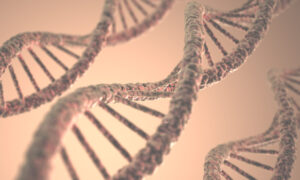Over the past decades, there have been great shifts in lifestyle habits, including a rise in excessive alcohol consumption. A major public health concern, the impact of alcohol consumption goes beyond the commonly known risks. For men of reproductive age, alcohol impacts both metabolic function and fertility outcomes.
A November 2024 review published in Metabolites, highlights the connection between alcohol intake, metabolism, and male reproductive health. In this article we’ll go into the review’s findings, how alcohol affects male fertility, and how important it is for fertility professionals to discuss this issue with their patients.
Long-term alcohol consumption is related to over 200 pathological conditions, including at least 7 types of cancer. Alcohol addiction is associated with a 5-8% increase in deaths. It has far reaching effects on health, particularly on metabolic processes and male reproductive function.
Alcohol and testosterone production
The World Health Organization defines alcohol abuse as binge drinking (≥5 drinks for men within 2 hours) or heavy drinking (≥15 drinks per week for men). Chronic alcohol consumption can lead to liver disease, which disrupts hormone balance, contributing to hypogonadism. Additionally, alcohol-induced oxidative stress damage Leydig cells, crucial for testosterone production. Factors like reduced insulin-like growth factor 1 (IGF1) due to liver disease impair testosterone synthesis.
The effect of alcohol on testosterone is dose dependent. However, differences between men and the presence of other health conditions make it harder to draw conclusions. Additionally, most available studies focus on adults, leaving gaps in understanding the impact on teenagers, especially during puberty.
The effect of alcohol on sperm
Both acute and chronic alcohol consumption impact sperm quality and quantity. While animal studies suggest a clear link between alcohol intake and damage to sperm-producing cells, human studies remain unclear due to lifestyle-related factors and the lengthy sperm maturation process. That said, one study observed significant declines in semen quality after a short period of heavy substance use during a Portuguese festival, suggesting even brief lifestyle changes can disrupt spermatogenesis.
The review authors admit that data on the effect of chronic alcohol consumption on fertility are challenging to interpret and available studies show contrasting results. Overall, a meta analysis of 15 cross-sectional studies indicated an inverse correlation between chronic use and semen quality, with moderate daily alcohol consumption negatively affecting both semen volume and morphology. On the other hand, a number of studies suggest that moderate drinking may offer some protective effects due to antioxidant compounds in beverages like wine, but these findings remain speculative.
Alcohol abuse (defined as the consumption of more than 50g daily) is linked to severe testicular damage, including spermatogenic arrest and Sertoli cell-only syndrome. However, such damage may be reversible with prolonged abstinence.
Despite methodological limitations, the evidence suggests that heavy alcohol consumption can harm male fertility. The review authors recommend that “chronic consumption in large quantities by alcoholics should be discouraged and preferably discontinued if pregnancy is sought”.
Key Takeaway
The effects of alcohol consumption on male fertility vary depending on the amount, frequency and duration of intake. Chronic and heavy alcohol use is linked to reduced sperm quality, hormonal imbalances, and testicular damage. As alcohol consumption increases, it is important that healthcare providers address this issue with patients seeking to conceive.
Stay updated with the latest in fertility research and technology. Explore the latest sperm testing solutions available for fertility clinics, sperm banks and laboratories here




